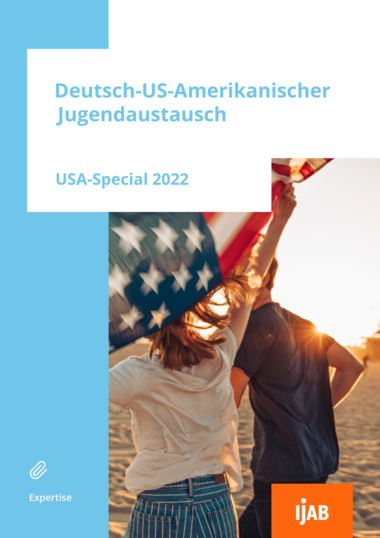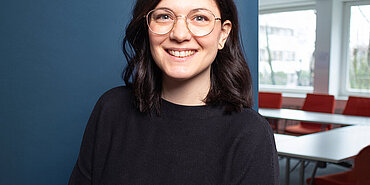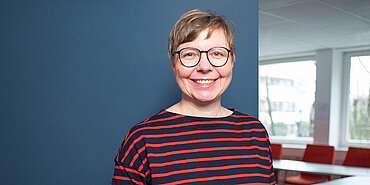Kat, what is your current role with Fridays for Future USA?
When I returned to the US from Germany, I’d just planned to continue working with Fridays for Future. But then I found out the movement in the US had already broken up in early 2020. Activism is common in the US, though, so you soon find organizations you can get involved with.
This was how I got to know people. At the end of 2020, three of us got together and we asked ourselves whether we needed Fridays for Future, or whether we should invest our energy in networks and initiatives that already exist. We came to the conclusion that Fridays for Future serves different niches and people, and it has different strengths. And so, the three of us relaunched the movement in the US.
We have no hierarchy or titles. So, I’d say my role is that of an organizer, coordinator, and generally activist at the national level. We initially set up Fridays for Future at a national level as a hub to pool resources and knowledge and help others set up local groups. I'm currently in Washington, D.C. and we've also been trying to start a local group here, but COVID has slowed everything down a bit.
From what you say, I understand that activism is much more widespread in the US than it is in Germany. Is that correct?
Yes and no! Activism in the US is just organized differently and there are different opportunities. I definitely wouldn’t say it’s better. For example, in the US activism is considered by non-activists to be much more radical, but at the same time there are far more organizations that people can get involved with in all kinds of ways. It’s really easy to set up your own organization in the States. As long as you present yourself well on social media, no one knows whether there’s two people behind you or two hundred. As a result, activism in the States is very fragmented compared to Germany, and so collaboration is not always effective.
Is there financial support? Maybe even federal or regional public funding?
There is no funding from the government, except perhaps in the form of tax relief, but donations from charities as well as endowment funds are common here. We’re not an officially recognized organization, so endowment funds are not really relevant for us. Plus, applying for and managing such funds is a resource-intensive business and a major hurdle for grassroots organizations if they have no permanent staff. We’re really lucky that we have a donation account. As an open collective, the account is fully transparent. Anyone can see the transactions.
What did your friends and family think about you relaunching the movement, and how did your peers react to your involvement?
I really had a culture shock when I came back to the States. Sustainability and environmental protection are seen as new issues here. They’re considered radical. Whenever I brought up sustainability in normal conversations in my previous job, everyone used to say “Oh, here goes Kat again...!” Even though the environment is talked about on the news, it’s viewed in a different way to other issues and not taken very seriously. Today, almost all of my friends are activists. Many others had no idea about the kind of activism we’re involved in with Fridays for Future. They were more familiar with the kind of voluntary work that involves helping out in a soup kitchen or an animal shelter. They support me because they know and love me. My mother is now passionate about sustainability. She’s always supported sustainability, but now the term actually carries meaning!
Do you notice a difference here between the generations in terms of how the issue is radicalized?
I do think that this kind of activism is a new concept here. It’s much more difficult to go on strike under labor laws in the US than it is in Germany, which is why people rarely strike. I also think that sustainability as an issue has not yet arrived in the US. It’s seen more as a trend.
So how does environmental education work in schools or in other settings?
It’s being introduced more and more, but usually by individual teachers who happen to have a strong personal commitment to the topic. School curricula change very slowly here. That’s why private initiatives and organizations that fill this gap and develop educational material on the environment for schools are so important.
Cue Parents for Future. How much support does the movement get from parents and schools?
Because of COVID, we haven’t had that many demonstrations here yet. But I can’t remember having seen schools or classes at any kind of demonstration. The school system puts so much pressure on students to get good grades that many wouldn’t skip class simply because of this. It would be better if these kinds of activities were offered as extramural activities. I have relatively few interactions with parents; it’s actually more the grandparents who write to us to say they want to support us. I think we need to seize the opportunities here in the US to get them involved too.
You’ve already mentioned the differences and similarities between the US and Germany. Are there any other points you would like to highlight?
Something that perhaps hasn’t been mentioned explicitly is that we all have to take personal action. We all have a personal responsibility to act and think about how we shape our society. But in the US, the narrative that responsibility for everything lies with the individual is created artificially and deliberately nurtured by the oil and gas industry to make people feel alone and powerless in the struggle for greater sustainability.
Escaping this cycle by talking to others and turning individual into collective action is something people in Germany have done much better than in the US. People here tend to either feel powerless or claim everything is a lie. There are few people in the US who are in the middle.
Are there US-specific issues for Fridays for Future? Issues that are discussed differently in the US than in Germany?
Race and gender identity play a much bigger role here. This has changed a lot in the US in recent years. In Germany, the focus has also shifted more towards climate justice, but not as much as here. No matter the topic of debate, whether it’s poverty or climate, everything is viewed through the lens of the racism and gender identity debate. If you don't mention it explicitly, you’re soon reminded of it in activist circles. There are advantages and disadvantages to all of this. It makes us take a closer look at these issues, but it also encourages cancel culture. We are all working to achieve the same goal, but we’re not necessarily working together yet. We’re getting too caught up with details, projects aren’t finished, we’re wasting people, time, and energy. And yet I am trying not to suppress these discussions. We need to have them at a time when so many people feel they’re neither seen nor heard. This is why I try to place the subject in a broader social context. There’s no wrong or right in activism. We want to give young people safe spaces where they can try things out. We’re activists who are doing this for the first time. We are learning and doing things simultaneously.
How are you organized nationally? How do you communicate? Do you use digital tools or do you have a platform where you meet?
We call ourselves a network. Everyone can be part of this network, or they can set up a local group. But there are lots of groups in the US that just set themselves up and do their own thing without connecting to us. Within our network, we use Slack and try to connect with people from the local groups. If someone tells us they want to join in, we say, fine, here’s a local group, you can join them. Or we tell them there isn’t a local group but that we can help them set one up. So, everyone who’s active at the national level is also involved in a local group and can participate in the working groups at that level. For example, a local group’s social media rep can join the national working group for social media and can connect there with social media reps from other local groups.
Within the network, there are currently 22 local groups and 81 people are signed up to Slack. So, we’re still relatively small. Some local groups, like the one in New York, are big, others are very small and consist of only two or three members. But we still managed to mobilize 45,000 people to attend a major demo.
One of the German government's current initiatives aims to intensify and develop youth exchanges with the US. Do you think there is an opportunity here for Fridays for Future as a youth initiative?
This would be very useful for Fridays for Future. Compared to other grassroots organizations, we already have a broad international base, which enables us to learn from each other. How do others do things? What else should we focus on? How can we tackle subjects in a different way? Those kinds of things. It’s important that young people meet people from other countries who are dealing with the same issues.
Can international youth exchanges be sustainable? This question is discussed a great deal in youth organizations in Germany. What do you think?
It’s true that we experience more of the world and are better connected globally thanks to technology and the internet, so we could reduce the amount we travel. But a Zoom call, even if it’s planned to be fun, is not the same as an actual in-person meeting. What’s important is that we plan trips more consciously. For instance, it shouldn’t be considered normal to jet off somewhere for a long weekend. If we travel, we should stay for longer and spend our time more meaningfully.
I do believe that we have to explore the world because it supports our personal development, and you can't get that kind of experience through social media.







